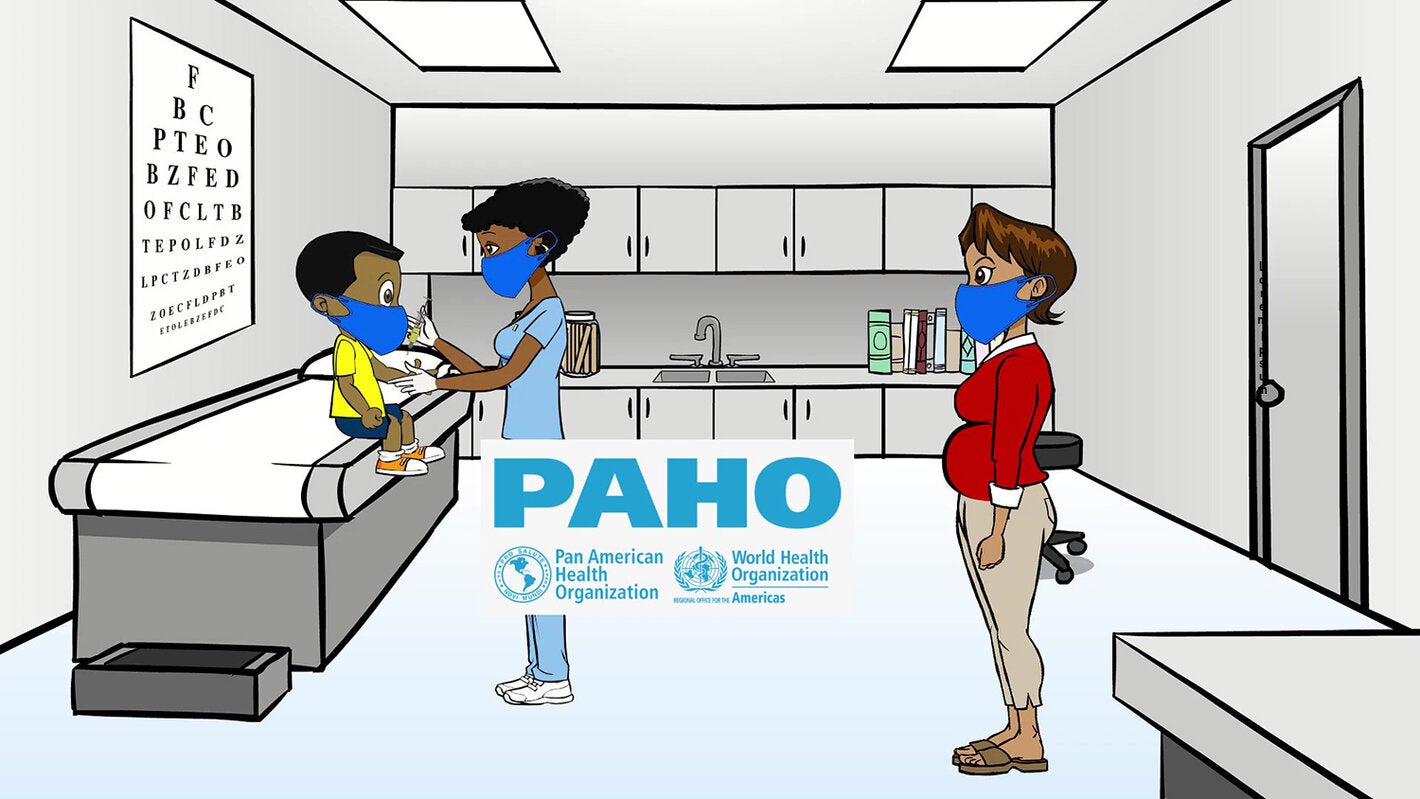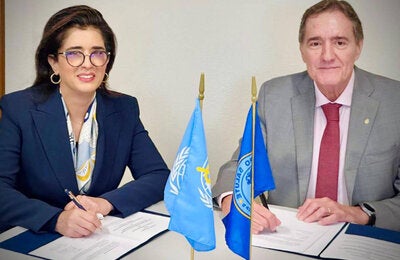
Bridgetown, Barbados, 08 July 2020 (PAHO/WHO) — As a public health emergency of international concern, the COVID-19 pandemic (caused by the novel SARS-CoV-2 virus) has drawn global attention and response. Because of this, many countries in the Eastern Caribbean have initiated a range of measures to mitigate the transmission of SARS-CoV-2 and reduce the impact of the outbreak on healthcare systems, including shifting of healthcare resources (human and financial) to the COVID-19 response.
However, these measures have led to various levels of disruption being experienced in the provision of Immunization services and the public’s perceptions on the safety of vaccines during the Pandemic. Disruption of immunization services, even for brief periods, will result in increased numbers of susceptible individuals and raise the likelihood of outbreaks of vaccine preventable diseases (VPDs) such as measles. Such outbreaks may result in increased morbidity and mortality predominantly in young infants and other vulnerable groups, which can cause greater burden on health systems already strained by the COVID-19 response.
There is currently no evidence that vaccines place an increased risk of contracting COVID 19 or of presenting a higher risk of complications in the general population. Hence, there are no known medical contraindications to vaccinate a person even if infected with COVID-19. PAHO/WHO recommends that a “personalized communication strategy must be implemented to disseminate precise health information, address concerns from the community, improve community ties and promote the continued use of immunization services” https://www.paho.org/en/documents/immunization-program-context-covid-19-pandemic-version-2-24-april-2020.
In this context PAHO/WHO office for Barbados and Eastern Caribbean Countries, produced a short Animation video targeting caregiver, children, adolescent and the general population, aimed at maintaining the population’s trust in vaccination services, promoting confidence in the EPI program and informing of the “appointment” strategy being used in the Caribbean countries as to ensure public health measures are in place while providing essential services.



